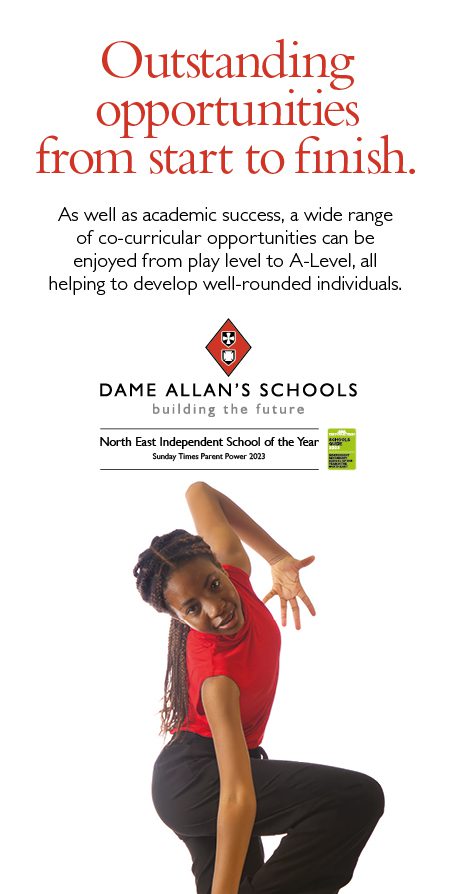By Geoffrey Stanford, Headmaster, RGS Newcastle.
As part of our ongoing Quincentenary celebrations (until Spring 2026), we are proudly honouring the remarkable individuals who have attended the school and helped shape its legacy.
Over the past five centuries, the Royal Grammar School (RGS) in the heart of Newcastle has welcomed many distinguished individuals – initially boys upon the school’s founding in 1525 and, over the past two decades of co-education, girls from across the region – who have helped shape its enduring legacy.
As a result of this shared experience, they are known as Old Novocastrians. Each year, I have the privilege of speaking to many of our Old Novos, and it is always fascinating to see the breadth of careers they go on to carve out, with many serving in positions of great distinction.
Their impact stretches not merely across the North East, nor even just across the UK, but across the whole world. Indeed, a recent legacy, very generously donated to us by an ON who lived in Australia, has enabled the school, within our Quincentenary, to welcome our 500th bursary student since the founding of our bursary campaign just over twenty years ago. They will be one of 100 bursary students at the school in September (up from 90 in the last academic year).
When talking with ONs, many fondly recall the positive influence of particular teachers in helping them to achieve their aspirations. Indeed, one BAFTA winning film producer includes his former Film Studies teacher in the credits for each of his films. Meanwhile, one of the portraits hanging in our historic Main Hall shows Hugh Moises who was Headmaster of the School for 38 years from 1749 to 1787. Moises’ reputation was that he turned out more distinguished men than any other schoolmaster in England at that time.
Among them were William Scott, who became Lord Stowell, and his brother John Scott, who later became the Lord High Chancellor of Great Britain and was given the title Lord Eldon. Illustrating the school’s longstanding commitment to supporting bursary students, Eldon later recalled, “Cuthbert Collingwood and I were class fellows at Newcastle. We were placed at that School because neither his father nor mine could afford to place us elsewhere.” Cuthbert Collingwood went on to be Admiral Lord Nelson’s second in command. He is arguably the forgotten hero of the battle of Trafalgar and George III remarked on the excellence of Collingwood’s naval dispatches, crediting his early education as “one of Moises’ boys.”
Other more recent ONs include Peter Taylor who became Lord Chief Justice, Sir Max Hill who succeeded Keir Starmer as Director of Public Prosecutions, and Gregory Winter who received a Nobel prize in Chemistry. However, while some of our former pupils have achieved great public acclaim, many others within the RGS Family have quietly gone out into the world, making meaningful contributions to society through their dedication to public service and community causes – often without recognition or fanfare. This often leads me to wonder what our current students will go on to achieve.
At our annual Founder’s Service, I encourage our Year 7 students joining the Senior School to reflect not only on how they will make the most of being part of such a special community but also on how they will contribute to it. Many may not yet know what path they will take, and that is perfectly natural. However, I hope that throughout their time at RGS and long after they leave they will continue to return to these questions of purpose and strive to make a positive impact in the world.
I encourage you to explore the RGS 500 microsite and discover more about our alumni, from pioneering scientists and influential artists to dedicated teachers and trailblazing innovators. Our microsite is home to a wealth of treasured artefacts and beloved stories.
Throughout the Autumn Term, we will launch five new themes exploring our rich heritage – from RGS Sport to our regional impact – so please, stay tuned for more anniversary celebrations and RGS historical insights.
www.rgs.newcastle.sch.uk/500th

